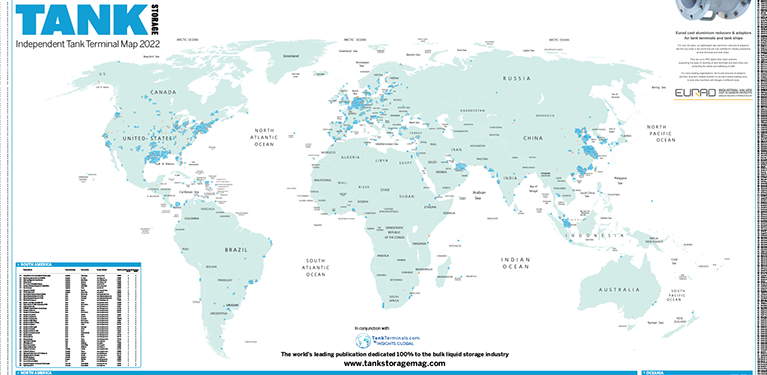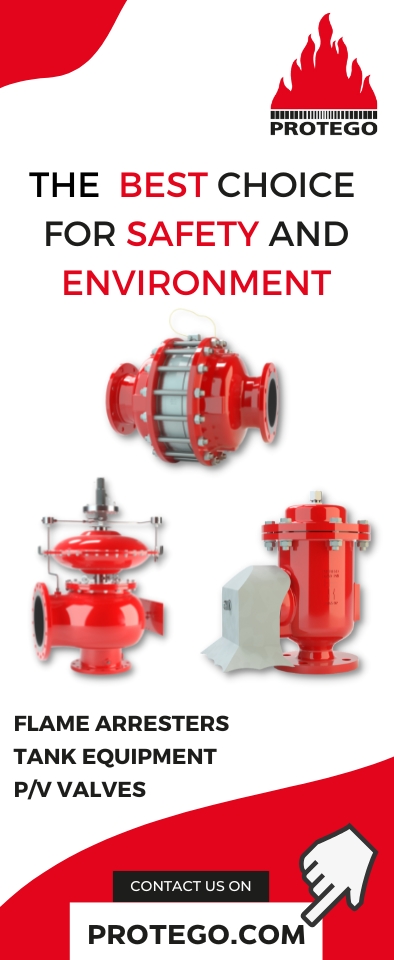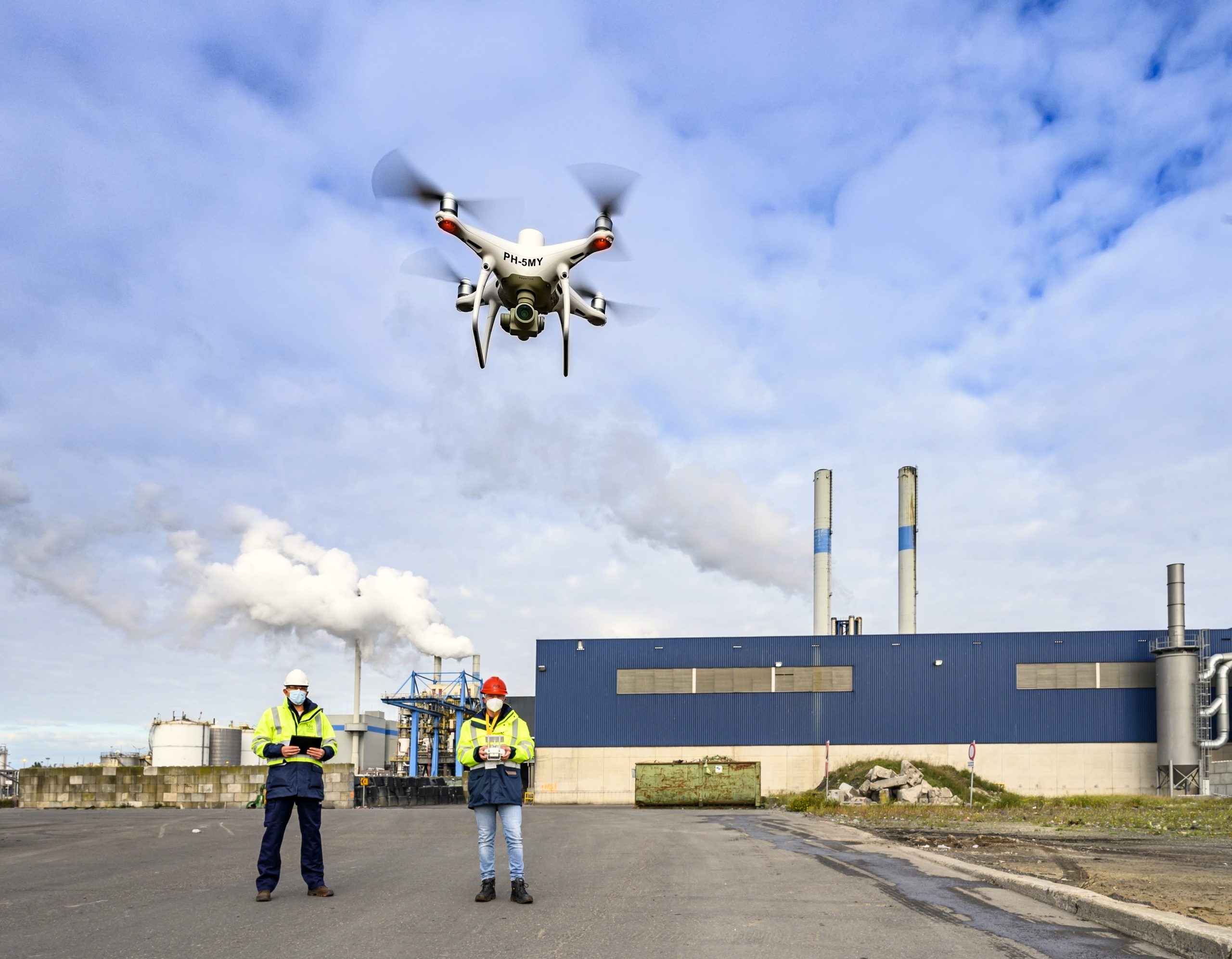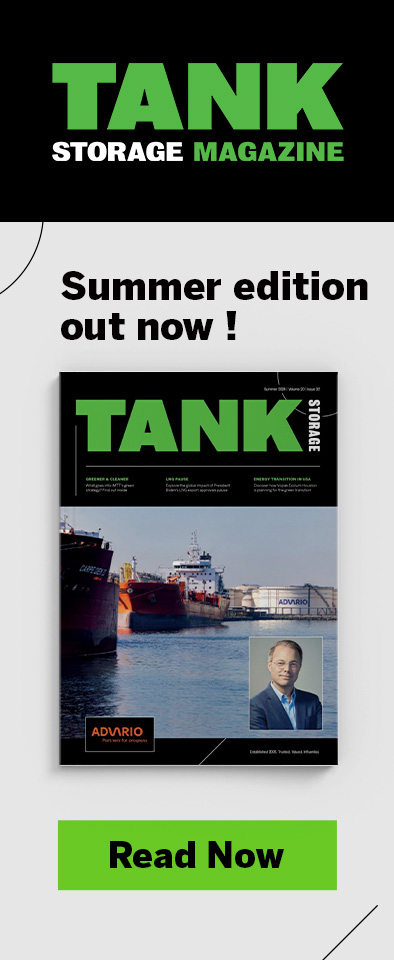Tank storage capacity in the Rotterdam area has doubled in the last decade to 30 million m3, while incidents related in this sector with major risks to the environment, such as Odfjell in 2013, have not repeated themselves. This is an achievement but it is surprising how strongly some companies still rely on the regulator. Why not take more responsibility and be more proactive?
For example, every six months, a rupture disc fails in the same spot when pumping over at one of the larger storage companies. Every six months, there is a leakage and a wave of complaints from local residents about an oil smell. This goes on until our regulator prescribes
an action plan.
But why wait for DCMR to enforce measures? Why not do your own research and put up your own improvement programme? Even if you have a good safety programme in place, why not conduct an inspection of your own site regularly and look at your installations through the eyes of an inspector?
REGULATION & COLLABORATION
DCMR is the regulator, and on occasion we have to act immediately. One lesson we’ve learned in the half century that we’ve been around, is that there’s more to our work than checking and punishing afterwards. In general, we try to develop a dialogue with companies at the earliest possible stage. There is no haggling with the rules, but a basis of mutual trust will open up opportunities for a discussion about safety culture. In many cases, this will lead to increased compliance. In the interest of transparency we even publish a safety perception survey model that companies can use themselves, in turn enabling them to forecast on key points in our inspections.
DCMR sought cooperation with VOTOB, the trade association of tank storage companies in the Netherlands, for a structural approach to safety improvement. Together we’ve set up a comprehensive collaborative improvement programme. VOTOB now offers the safety maturity tool, a modular system for change management, incident management, substance management and safety studies. Companies can arrange their own audits. We enjoy seeing our clients not waiting for the regulator to have their say, but anticipating what is required as part of thier safety policy.
COMPLIANCE
We know dealing with the rules takes energy and time. However, the Netherlands has an extensive compliance system for storage and transport of hazardous substances. The Publication Series on Dangerous Substances (PGS in Dutch) serves as a basis for operations management in line with the European REACH regulations.
You can approach this in different ways. One way is trying to ignore it for as long as possible. But that means you take more and more risks in your operations and you jeopardise the future of your company. The less a company complies, the more often we visit and the more fines we impose. Sometimes the only solution is to shut down operations.
Instead of ignoring problems, you can get ahead of them, as those rules are here to stay. In the long run, we all benefit. Society in general will be the better for it, but also the companies themselves, as safety levels increase. And interruptions caused by accidents can be costly!
FUTURE-PROOFING OPERATIONS
The storage industry is changing in many ways. Drones are just one example of how technology is revamping the inspection profession. They can spot aspects of an oil tank that are otherwise very difficult
to see for an inspector.
Another development is cybersecurity. We actively encourage companies to become digitally resilient. In Rotterdam, we do this alongside the Port Authority, within a dedicated taskforce.
And then there’s the energy transition. We are currently seeing the consequences in practice. Tank terminals are switching from storage of black product, such as diesel and fuel oil, to white product, i.e. bio products. This requires a different way of storage, to which different rules apply.
Some of those substances are also more corrosive and cause tanks to age faster. These are all things to take into account in your safety policy. And there is another consequence. This type of product often requires storage in heated tanks. One heated tank without roof insulation takes as much energy as 300 households per year. Our inspectors will increasingly monitor compliance with energy-saving obligations. Tank operators can anticipate and plan for this. If you are going into a maintenance cycle, or plan to build new tanks, include that insulation in your design. Don’t think ‘it’s not mandatory here yet’. Take initiative yourself. With the high energy prices, this generates considerable savings too!
Nienke de Wilde, director of inspection and enforcement at DCMR, will be speaking at the StocExpo conference on 14-16 March. Don’t forget to register now and claim your conference ticket.


